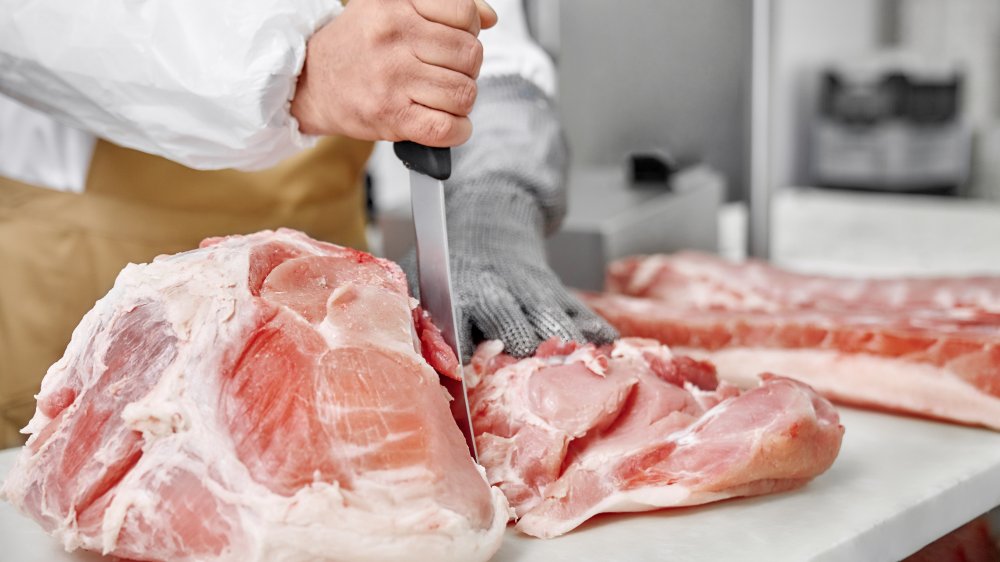Why You Should Make An Effort To Only Get Your Meat From A Butcher
A few years ago, we ran a piece on the practices of butcher counters in grocery stores. With the shoddy practices detailed at length, you might consider it time to start shopping at a butcher shop. That might sound daunting. After all, when the meat comes in its packaging, you simply have to find the label you're looking for. One of Delish's arguments for patronizing a butcher shop is that they can provide so much more help than what will be found by just opening a pre-wrapped package: "If you're unsure of how to prepare a certain cut, how much meat you will need, or even what you should serve alongside your steak, a good butcher will be able to give you the answers."
As HuffPost describes, ground meat from butcher shops is more trustworthy. In their example, hundreds of animals go into the patty you pick from the supermarket shelves, meaning that it's difficult to know which globs of ground meat aren't contaminated. A butcher grinds meat on a more regular basis, giving them a heightened sense of what is better for the customer.
In fact, it's the lack of a highly industrialized process that can save you money, as well as provide you with greater variety. Since a store like Walmart wants to have a steady supply of specific animal parts the majority of people will buy, they disregard other potential, cheaper parts or rarer meats in favor of more standard goods.
Well, what happened?
A skeptical reader may wonder why if going to the butcher is so much better than the grocery store. Is this even a conversation? Surely, the superiority would have won out a long time ago.
The Butcher's Guild, a fraternity of meat cutters, dates their decline with the 1960s. Specifically, the issue is with packing plants, with power saws and mechanical knives that cut up the meat quickly before factory workers place it in vacuum-sealed bags, ready for shipment to supermarkets. Elsewhere, it is generally agreed that the supermarkets did the butchers in — not because of quality, but ease. The main rationale behind this is perhaps best expressed in an article archived at Consumerist, which notes that while the writer's mother would once go to several stores for their shopping, today she only goes for one for all her needs: "Consumers pointed to price and convenience as their top reason to shop at stores like Target and Walmart rather than a traditional supermarket." What drove people from the butcher shop to the supermarket now drives people from the supermarket to the discount department stores.
As Turner & George, a butcher shop in London, notes in their history of the butcher, scandals at some chain stores — hamburger containing horsemeat, for instance – have caused many consumers to turn away from unprovenanced, industrial-scaled meat supplies to butcher shops they can trust to provide them with quality products. The butcher survived and still survives.

